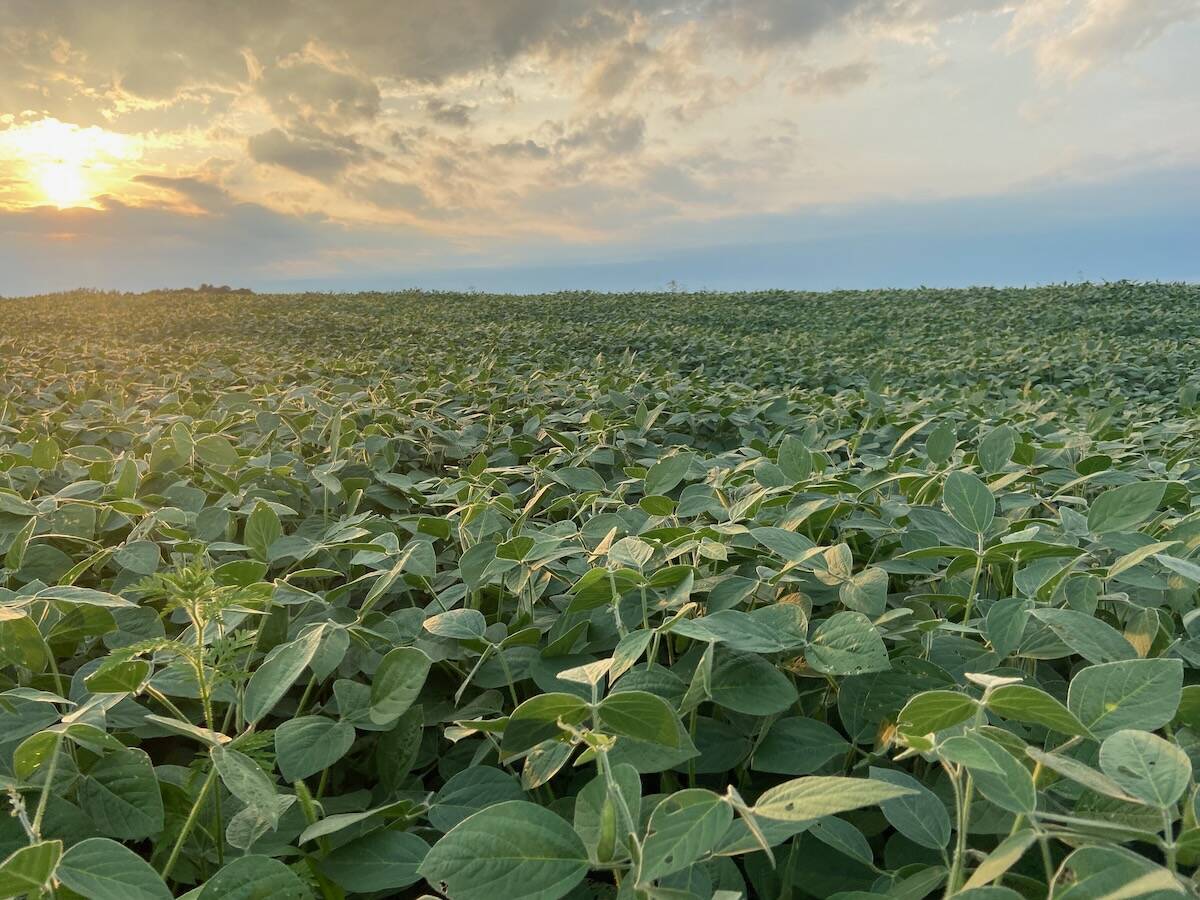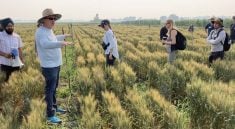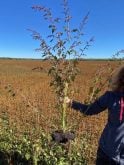Keystone Agricultural Producers will set its sights on two emerging noxious weeds: waterhemp and Palmer amaranth.
A resolution brought forward by University of Manitoba agriculture diploma students during KAP’s March advisory council meeting March 27 aims to give more support to farmers to beat back Manitoba’s growing problem.
Why it matters: Waterhemp and Palmer amaranth have well-earned reputations for prolific seed production and herbicide resistance.
Read Also

Weed resistance closes in on glufosinate
Expanded soybean acres and tighter application windows have eroded buffers that have so far protected Liberty herbicide on Prairie farms
The resolution would see KAP fund testing on the resistant tendencies of these noxious weeds, allocate resources to develop strategies against them (such as research into crop rotation, cover crops and reduced seed row width) and to fund work to find better herbicide options.
“We believe that this issue needs to be tackled with greater knowledge of how to scout for and deal with waterhemp and Palmer amaranth,” said one student, Nathan Krahn, of Rivers, Man.
The two pigweeds are both Tier 1 threats under Manitoba’s Noxious Weeds Act and both are relatively new to the province. Waterhemp was first confirmed in the province in 2016 and has since spread through eastern and into central Manitoba, and has popped up as far west and north as the RM of Dauphin near Riding Mountain National Park and RM of Ellice-Archie along the Saskatchewan border.
As of 2023, Manitoba Agriculture had confirmed waterhemp in 19 municipalities.
Palmer amaranth sparked alarm when it was first found in central Manitoba in 2021, but has yet to see significant spread. As of 2023, the RM of Dufferin was the only municipality with a confirmed Palmer amaranth incursion.
Both weeds pose serious yield loss risks due to their tendency to develop glyphosate resistance.
One student presenter, Brennan Friesen, farms in the Municipality of Rhineland, an area where waterhemp has been discovered.
“We haven’t seen it yet, but it’s just a matter of time,” said Friesen. “We just want to have a proactive solution instead of a reactive one.”
KAP board member Chuck Fossey asked the students if they were contemplating a mandatory action proposal, noting that Alberta regulates the frequency of canola rotations on the same field to stop the spread of clubroot. Students said they only hoped to get programs out to farmers.
The resolution passed with 92 per cent approval.
Other business
KAP president Jill Verwey gave an update on the three-month Imperial Oil pipeline shutdown, which had raised concerns about fuel supply in parts of the province.
“Fuel suppliers have assured stakeholders that there is no issue with fuel supply in Canada or the province, but that delays in delivery and price increases will remain potential concerns,” she said.
She added that agricultural needs are included in the fuel distribution planning process to ensure demands are met, and no significant impact to agriculture is expected.
Verwey highlighted KAP’s recent lobbying efforts, including its work on Bill C-234. If passed in Ottawa, the bill would exempt propane and natural gas for grain dryers from carbon pricing. The bill passed the House of Commons, was amended in the Senate to remove barn heating from the original document and, as of press time, was lingering in the lower chamber.
That bill has been a top priority for KAP for a while, Verwey said, adding the organization continues to engage with MPs, senators, industry stakeholders and KAP membership as the saga around the legislation persists.
“We are disappointed to see the Senate vote in support of the committee report that included some harmful amendments,” she said. “We will now lobby members of Parliament to reject the senator’s changes so that the bill is restored to its original form and sent back to the Senate for approval again.”
















